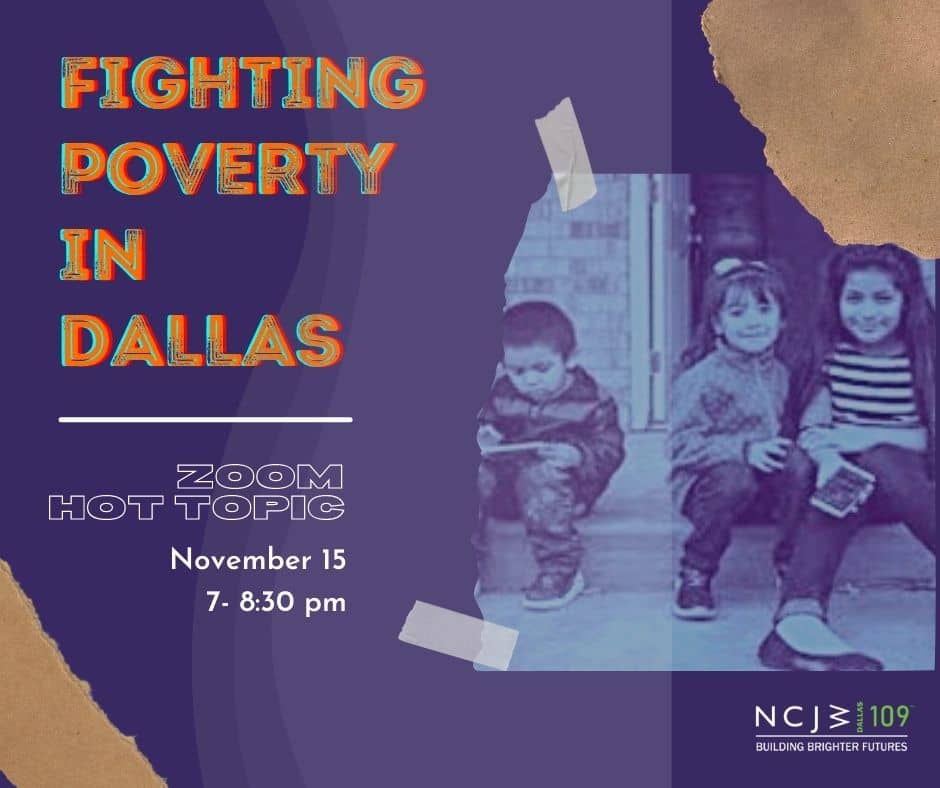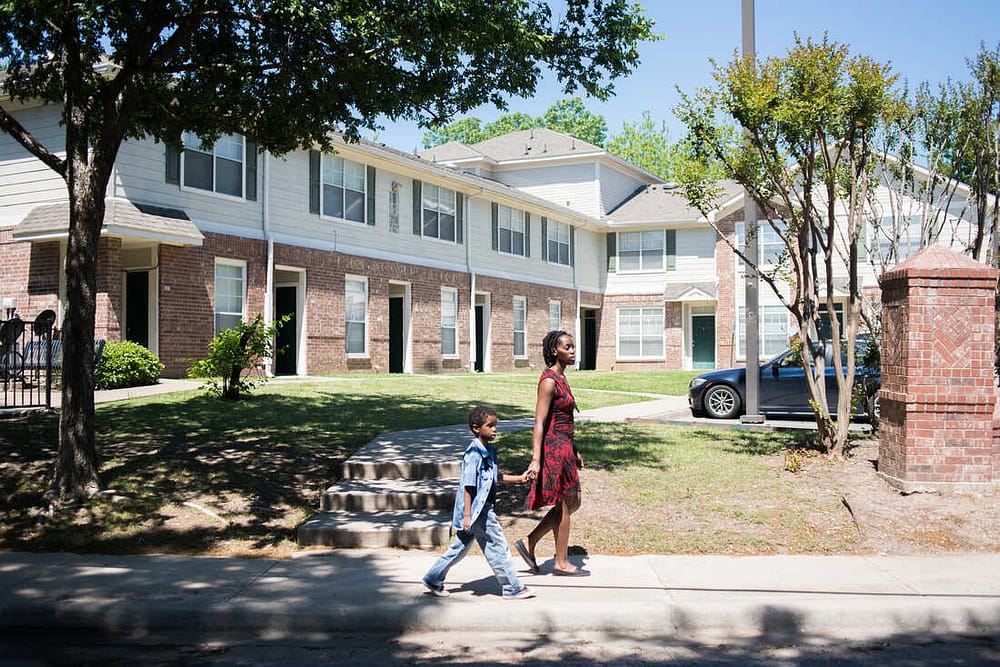
Zoom Hot Topic
Monday, November 15 at 7 pm
Women and children are the face of Dallas homelessness, hunger and poverty.
What is the state of poverty in Dallas today?
How much worse off are persons of color and female heads of households with children than they were in 2018?
WHAT WILL IT TAKE FOR THEM TO RECOVER?
In 2018, The Mayor’s Task Force on Poverty reported that Dallas’ median income – less than $50,000 – was both lower than that of any other large Texas city and lower than the US average. Additionally, high numbers of Dallas households with children lived in poverty, more than any other major Texas city and more than every large US city except one.
There were clear connections between income and racial segregation throughout Dallas: 28% of Hispanics and 31% of African Americans live below the poverty line. Other key drivers of poverty included lack of affordable transportation; lack of education; limited English proficiency; high teen birth rates and lack of home ownership. In fact, 45% of female heads of households with children lived in rental housing.
But there were reasons for hope. The child poverty rate was declining, DART was moving to ensure access to underserved communities, the City of Dallas was developing a comprehensive housing policy and the public school system – after years of struggle – was showing consistently improved performance.
Then, the pandemic hit.
It hit persons of color and those in poverty the hardest. Women were particularly affected as job loss, home loss, and the shecession took root. Schools went virtual, learning suffered, and students continue to struggle as the pandemic drags on.
The economy is recovering but many positions continue to go unfilled – especially in education. And inflation is high, hitting the food and energy sectors hard. The cost of a meal and the cost of home heating are expected to increase significantly throughout the winter, leaving many families in poverty facing a ‘heat or eat’ Hobson’s choice as the weather grows colder.
Once again, there is hope on the horizon. COVID vaccines for children 5 -11 years-old have just become available. President Biden’s ‘Build Back Better’ plan – albeit a significantly smaller version – is inching toward completion.

THESE ARE THE ISSUES OUR PANEL WILL DISCUSS ON NOVEMBER 15.
YOU DON’T WANT TO MISS IT!
MEET THE PANEL

| Three prominent Dallas community leaders – Regina Montoya, (CEO and Chairperson of Regina T. Montoya, PLLC); Kate Rose Marquez, (CEO of WiNGS); and Ellen Magnis, (President and CEO, Family Gateway) will focus on the Dallas intersectionality of poverty, women and families in Dallas. NCJW Dallas’ Executive Director Shannon Morse will guide their exploration of what is, what might be and how we can get there. Regina Montoya is currently the CEO and Chairperson of Regina T. Montoya, PLLC. She is well known as a national and community leader with extensive volunteer, political and professional accomplishments, including an impressive list of ‘firsts.’ As a result, former Dallas Mayor Rawlings asked her to lead the Dallas Task Force on Poverty. Also in Dallas, she chaired the Legislative section of the law firm of Godwin and Carlton and was the first Latina partner at another firm Akin, Gump. During the Clinton administration, she was the highest-ranking Hispanic in the White House. She also served as the US Representative to the UN General Assembly of the United Nations. She has also frequently appeared on PBS, ABC and Fox. Regina was the Honorary Chair of the NCJW Dallas’ 105th Birthday Luncheon. FOR MORE ABOUT REGINA MONTOYA, CLICK HERE. Ellen Magnis is the President and Chief Executive Officer of Family Gateway, an organization dedicated to serving families with children experiencing homelessness. She is responsible for fundraising, community relations and staff development, including oversight of the community’s only emergency shelter that will serve any family with children, complete with wrap-around services and an afterschool program, as well as programs supporting more than150 families in supportive housing. Under her leadership, the agency is now recognized as the Access Point in Dallas County to assess families with children seeking shelter care and triaging them to the appropriate intervention. FOR MORE ABOUT ELLEN MAGNIS, CLICK HERE. Kate Rose Marquez serves as the Chief Executive Officer of WiNGS, a 112-year-old Dallas nonprofit that empowers women, fights poverty and impacts generations by providing services to help women live their fullest potential. She has experience on all sides of the nonprofit/donor/corporate citizen equation – as an officer of a publicly traded corporation, a board member for numerous regional nonprofits, a consultant for companies seeking counsel on impactful community engagement and as a thought leader in transformative nonprofit fundraising and branding. FOR MORE ABOUT KATE ROSE MARQUEZ, CLICK HERE. |





